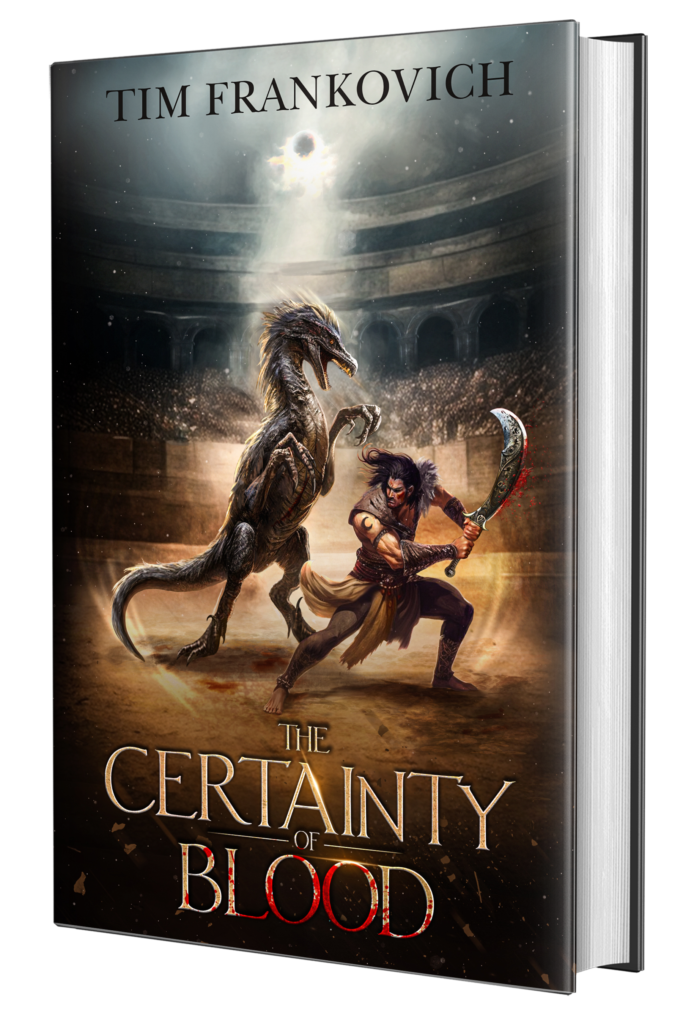
Chapter One of The Certainty of Blood is available right here!
And pre-orders are still open. Coming May 1st!
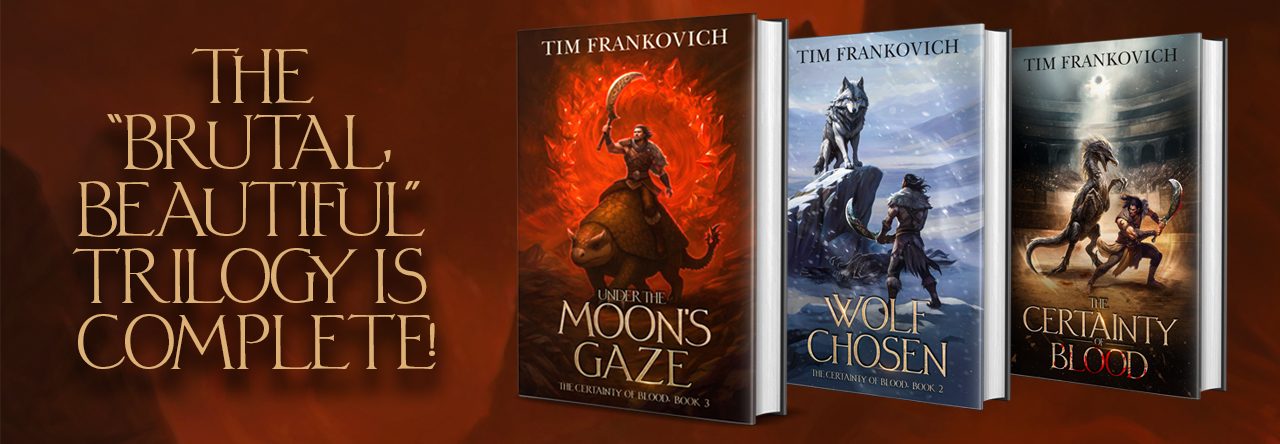

Chapter One of The Certainty of Blood is available right here!
And pre-orders are still open. Coming May 1st!
The Certainty of Blood. A new epic fantasy, arriving May 1st. Pre-orders are available NOW.
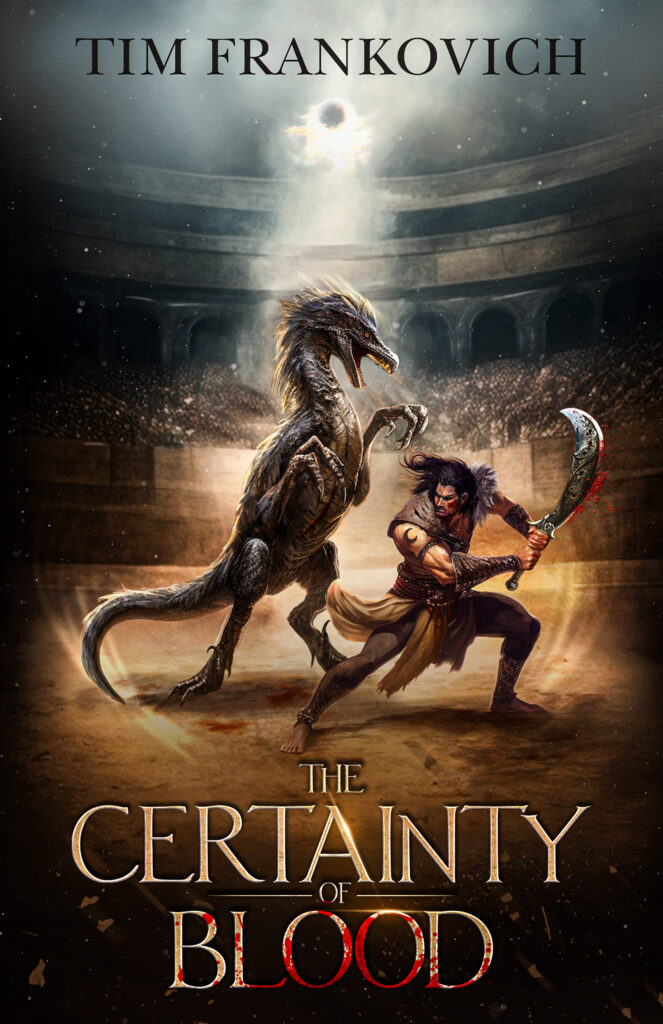
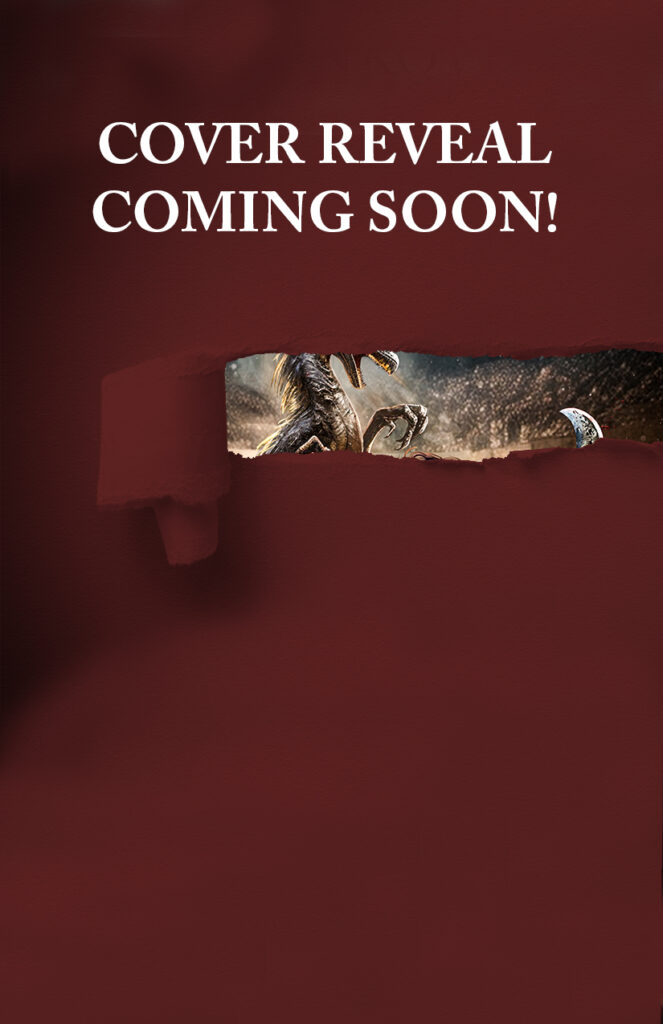
When Aldan discovers the power to burn someone’s blood, he is taken from his family, branded, and sold into slavery as an arena fighter. A painful life and an early death are all he can expect, until he listens to a supernatural voice coming from his own blood. Taking her advice, he uses his power to become the greatest arena fighter of the age, fighting year after year with one goal in mind. If he can purchase his own freedom, maybe a normal life with the woman he loves is possible.
And now, he needs to win only one more fight… against a rebel leader who people are calling “the chosen one.”
From the grueling training grounds where boys learn to kill, to the luxuries of the sinister Hawk King’s palace, Aldan’s whole life has led inexorably to this one day. This one fight.
The king holds everything Aldan cares about. All he has to do is kill this final opponent. But love and friendship demand a different outcome. The choice is not as easy as it first appeared…
Gladiator meets The Name of the Wind in this mesmerizing tale of blood, glory, magic, and love.
The exact release date is not settled yet, but my tenth book, the launch of a brand new story (and world) is coming in the second quarter of 2023.
An epic fantasy, The Certainty of Blood is the longest book I’ve written so far. Thanks to my hand injury last year, it’s also gone through the longest period of revision and editing. I’m very proud of this one.
The working title was Bloodless, but that never really fit with the actual story. The Certainty of Blood does a much better job.
Subscribers to my newsletter have already gotten a sneak peek at the opening chapter. (See why you should join us?)
The cover is being designed now. I’ve started early work on the layout and bonus extras. And I’ll start looking for advance reviewers.
So stay tuned. It’s been a long, slow return from my injury and surgery, but a new book is coming (and more later in the year).
This year did not go as planned, but I can take comfort in that it wasn’t entirely my fault. Even so, it had some successes and progress. I wrote over 232,000 words, but almost all of that happened before October (when I injured my hand). Here’s a breakdown of what happened in 2022:
Heart of Fire series
My first epic fantasy series continues to be my best sellers. In March, the first two books were offered free on Kindle. Each one was downloaded over 1,000 times with very little advertising. While it didn’t result in huge sales of the other two books, I do continue to see more page reads on those two as people get around to reading the free books they downloaded.
2023: I do still plan to put together a box deal offer on this series at some point.
Dragontek Lore series
This was the big one for the year. I’m still amazed that I published three books in the series (Auric, Onyx, and Amaranth) in the course of one year. My plan had been to publish the next one (Atramentous) at the end of the year, but like so many things in the final quarter, that got derailed.
2023: In some ways, though, it’s a good thing. I think Atramentous needs some more re-writes as the penultimate book in the series. Right now, I’m tentatively hoping to release it late in the first quarter of the year, followed by the FINAL book in the series, Chroma, sometime later in the summer or fall.
New fantasy series
This accounted for most of my writing time in 2022. I wrote the first draft of this new book (tentative title Bloodless in the sidebar – that will be changing) from May through September, and I loved every minute of it. Since then (and the injury), I have been slowly editing and revising it into the shape it needs to be. In my optimistic view from late 2021, I thought this one might come out for Christmas this year. If it had, however, it would not have been as good as it will be. The new revisions are making it better, deepening both the world and the story.
2023: I’m not sure which will be published first: this one or the newest Dragontek. I want to make sure the launch of this book is something special. But it will be sooner rather than later. Ideally, I want it out before Comicpalooza in May. I’ll probably release some excerpts to this list sometime early in the new year. I’m also looking forward to writing the sequel.
Live Events
Comicpalooza 2022 was fantastic, the biggest live event I’ve done by far. I had planned to do more here toward the end of the year, but injury and weather prevented it.
2023: I’m already registered for Comicpalooza 2023! Beyond that, I hope to do at least a couple more events in the year.
Summary
By the end of 2023, the Dragontek Lore series will be complete. At least one book in the new series will be in your hands. And I’ll be talking about the next big thing, whatever that is. I do have some ideas, so we’ll see where they lead…
Amaranth, book five in the Dragontek Lore series, releases today! To celebrate, the first two books in the series are FREE to download this week only!
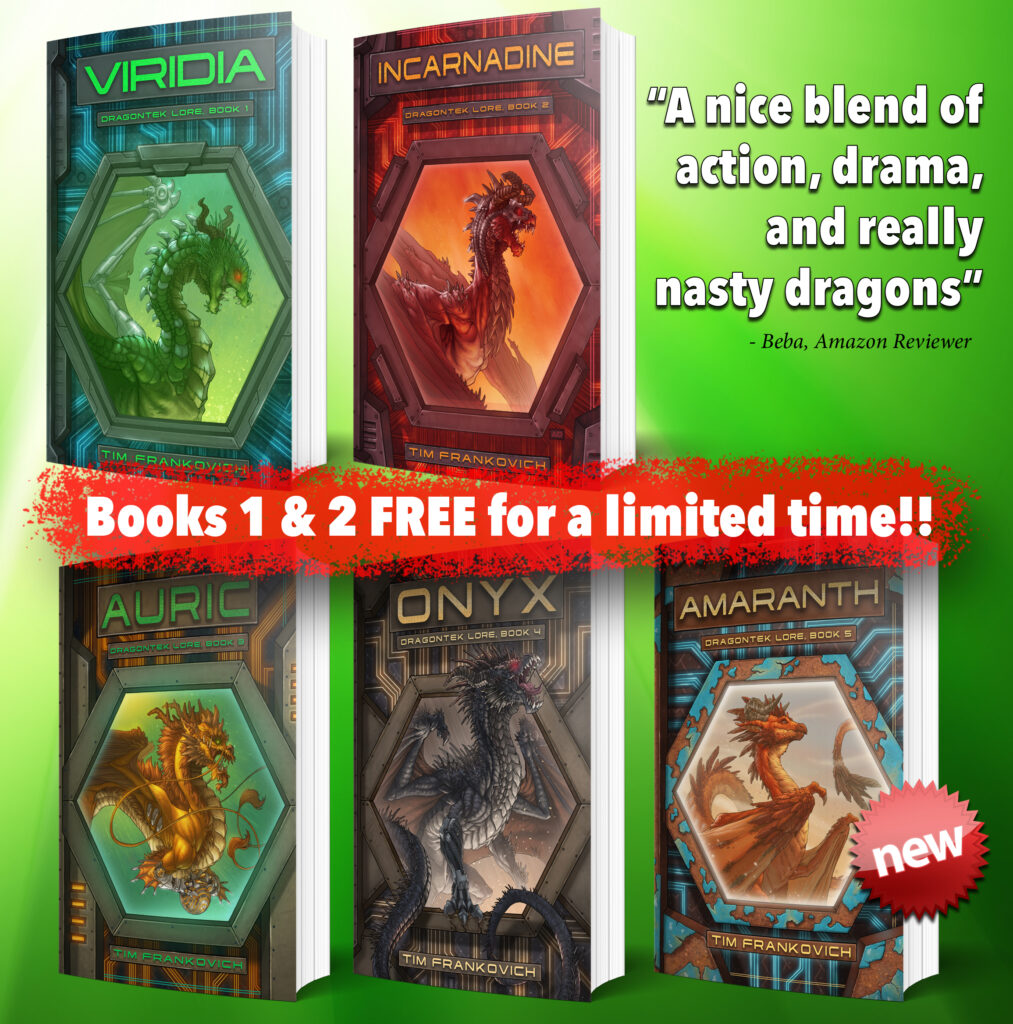
Amaranth, book 5 in the Dragontek Lore series, launches next Monday, October 17! Check out this awesome cover and then the pre-order page right here!
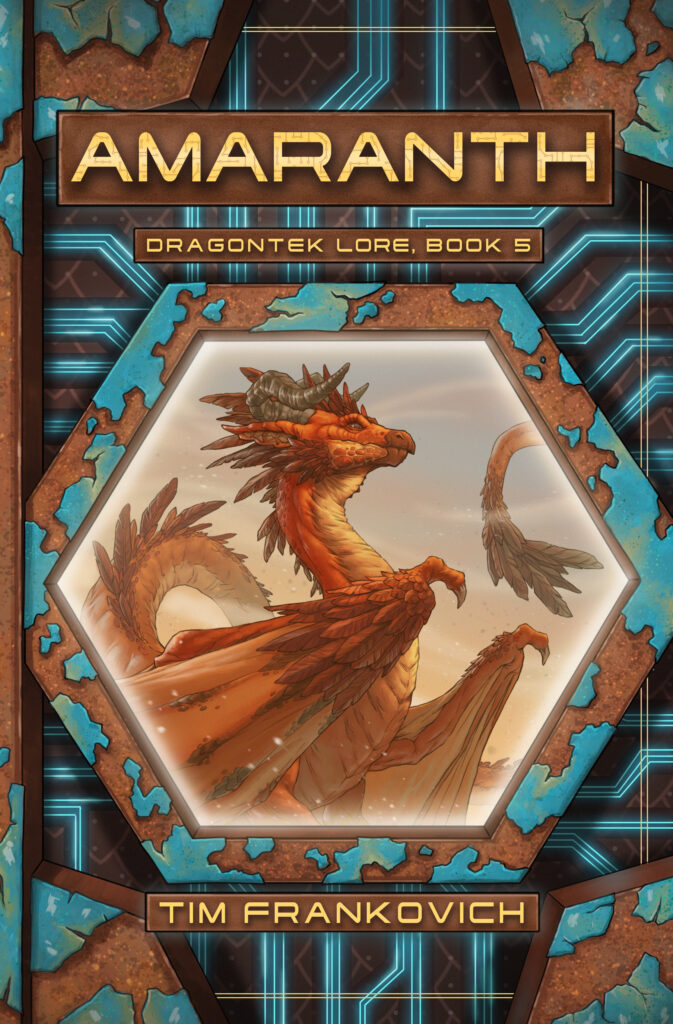
Beryl’s quest to end the rule of the dragons faces new complications!
Not one, but two different dragons appear to know all about Beryl and his friends. Both wish to use him for their own ends, one with persuasion and the other with blackmail. Can Beryl navigate a path between the intrigue to protect his friends and yet still defeat the dragons?
Complicating every step of the way is the female dragon, Amaranth. Whose side is she on? And when Beryl enters her home alone, can he emerge unscathed?
I keep resetting the progress bar over on the right. My new epic fantasy, Bloodless, is cruising along, and the end is in sight. But… as I look at what’s left, I keep revising the word count upward. I’m still writing over 1,000 words/day, but it’s not always reflected, because I increase the target word count. It started at 130,000, and has slowly moved up to 160,000 now. And it might be longer than that!
This is the longest book I’ve written, the most epic, and… I think the best. I can’t wait for readers to see if they agree with me.
A friend noticed that my editing bar for Amaranth in the right column over there hasn’t budged much lately. But the writing bar for Bloodless is moving every day, isn’t it?
That’s my problem. I get so into the creation of a new story (in this case, Bloodless), that I neglect my other duties as a writer. No, “neglect” isn’t quite the right word. I just don’t want to do it. I don’t want to edit a different story. I don’t want to work on marketing for the earlier stories. I want to write this NEW story.
As an independent author, this is something I need to work on. I need a better balance of my time and efforts, regardless of what I “want” to do. Discipline. It’s everyone’s problem.
If only this new story wasn’t so cool…
Powered by WordPress & Theme by Anders Norén